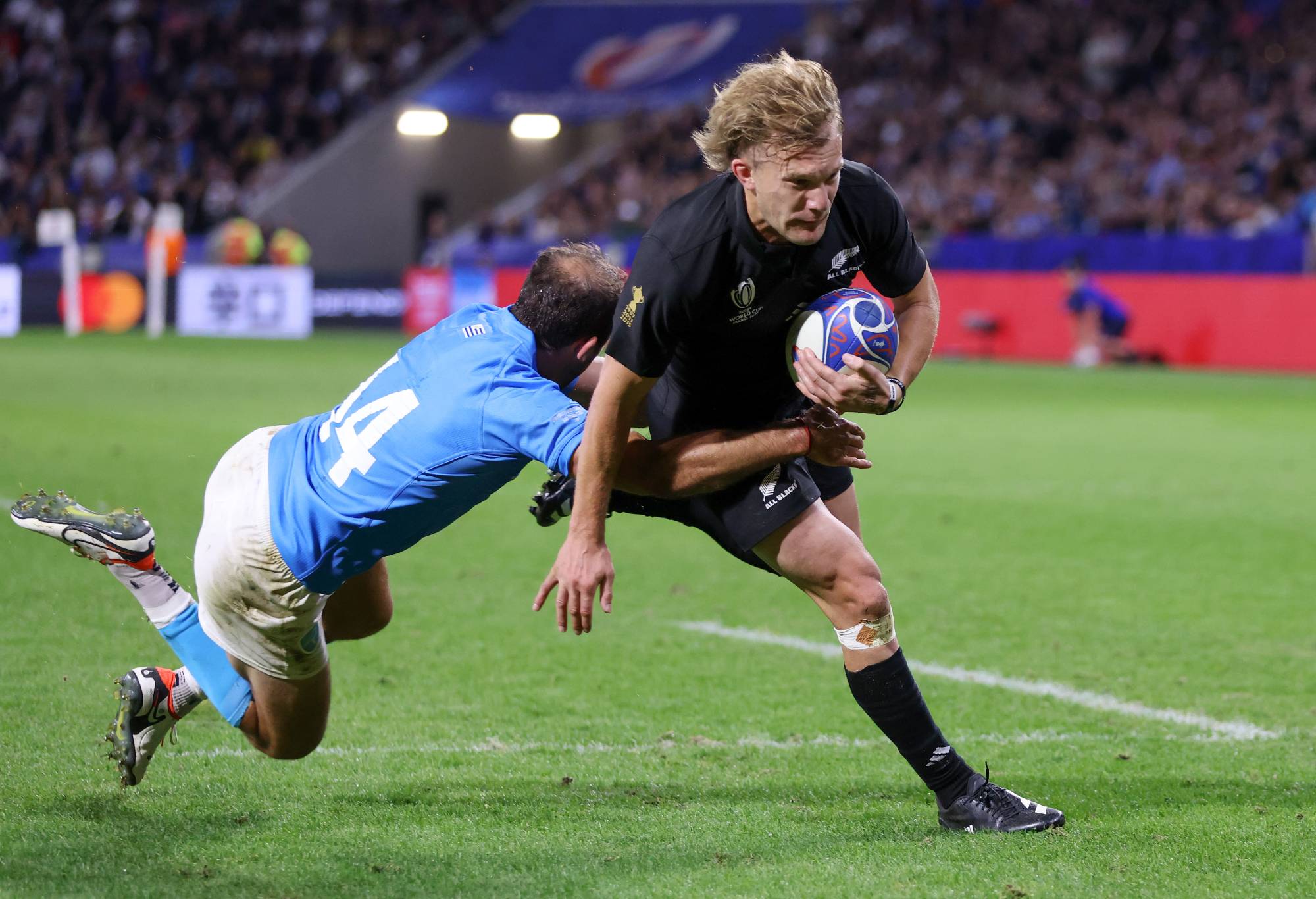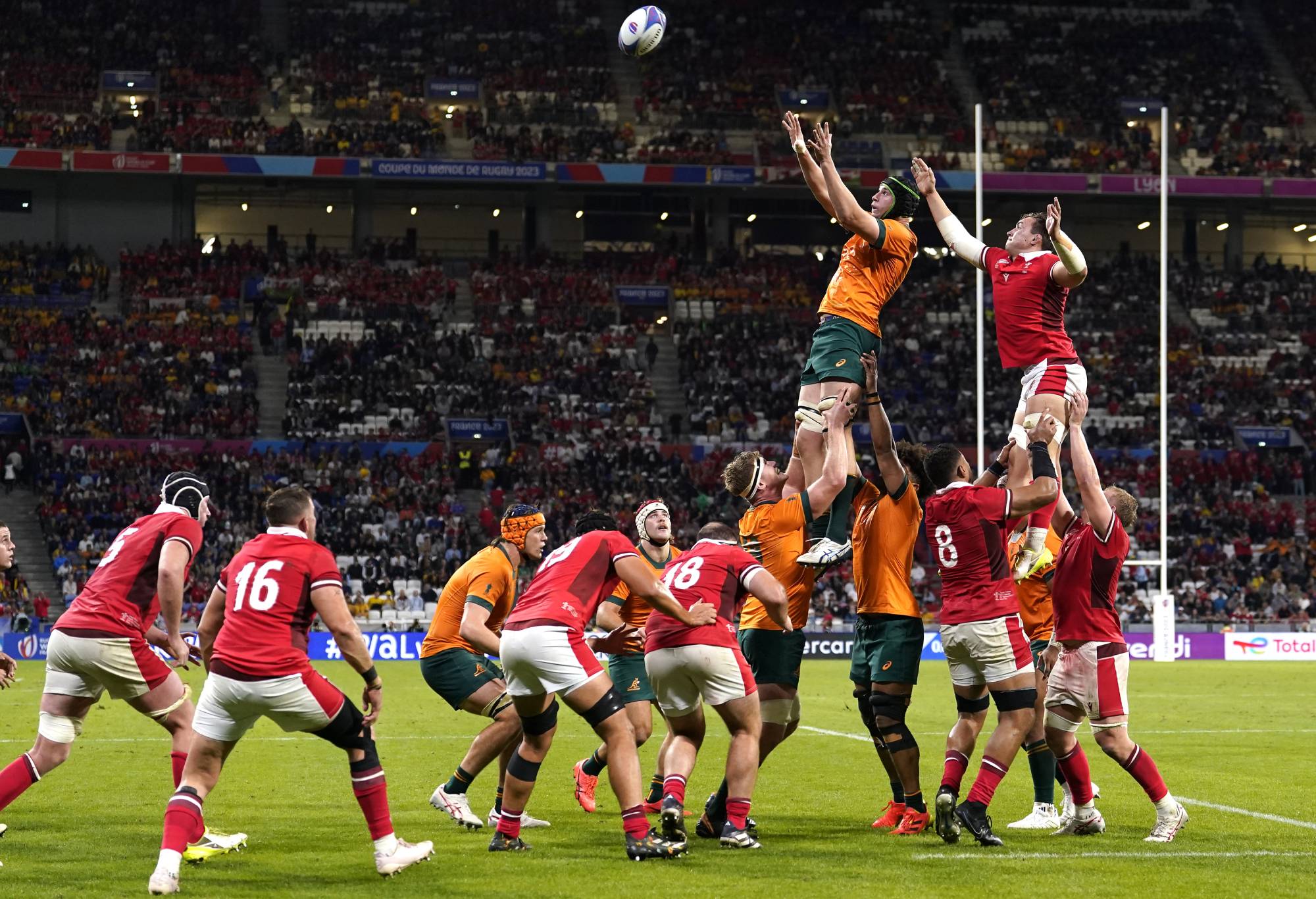PARIS – Breathe easy Australia, you won’t be bowing out in the pool stage of the 2027 Rugby World Cup.
Your passage through to the knockout stage was confirmed on Tuesday.
Not because of any great recovery on the international stage, nor restructuring or alignment, but because of the World Rugby Council’s decision to essentially undermine the pool stage of the World Cup.
By increasing the World Cup to 24 nations, where there will be six pools of four, missing the knockout stages will be virtually impossible. Even for the Wallabies.
The top two of each of the six pools as well as the four highest third-place finishers will qualify for the round of 16. It means only eight international teams will miss the knockout stages.
You can already predict at least 12 of the sides that will progress to the last 16 – the Six Nations representatives, Rugby Championship sides, Fiji and Japan.
While the expansion sounds great in theory, in reality, it will devalue the opening four weeks of the competition, which will do more harm than good.
Remember the All Blacks’ 96-17 win over Italy in Lyon?
Or France’s 60-7 thrashing of Italy a week later?

Italy are likely to make the knockout stage of the World Cup for the first time following World Rugby’s decision to expand the 2027 tournament. (Photo by Paul Harding/Getty Images)
Chalk up Italy for their maiden knockout match in four years’ time.
Ireland should even win their first one, too.
Australia? Well, having missed the pool stage for the first time after a historic first loss to Fiji in 69 years and a heavy loss to Wales, they will progress too.
Ditto, Scotland.
But wasn’t that the great aspect of the pool stage in 2023?
The Wallabies – a two-time World Cup-winner – missed the quarter-finals for the first time as they watched and waited and sweated on the outcome of Fiji and Portugal.
Scotland, who missed the knockout stage in 2019 when Japan made their maiden quarter-final, missed the knockout stages too. They were ranked fifth in the world coming into the tournament.
Even in 2015, the World Cup in Britain was rocked when England failed to progress to the knockout stage.
Their opponents in the pool stage were Australia, Wales, Fiji and Uruguay – it was considered the group of death and, indeed, proved to be for England.
But World Rugby’s decision to expand the tournament to 24 teams and introduce a round of 16 has devalued the pool stage. In many respects, it has cheapened the round of 16, too.
The drama – and consequence – will be taken away from the opening month of the World Cup.

The Wallabies shouldn’t have any difficulty progressing out of the pool in 2027 following World Rugby’s expansion. (Photo by Andrew Matthews/PA Images via Getty Images)
Fans can skip the opening four weekends of seven because it will be nothing but cricket scores and snooze fests. The quality will be spread to thin across the six pools.
Remember last weekend’s first semi-final?
The world switched off when the All Blacks hammered Los Pumas to progress to the World Cup final. That was after 42 minutes.
What will they think when there’s no jeopardy in the opening month? It will like watching a Big Bash match with no meaning other than individual performances and injury watch.
The Wallabies, Scotland and Italy could still lose two matches and comfortably make the final 16. That’s not right.
In reality, the expansion has been made to ensure the North American representatation in 2027 after there was none this year.
With the United States listed to host the 2031 World Cup (they could still be stripped of hosting the tournament in the absence of government funding), missing out on the 2027 tournament would be a disaster.
That’s not to say that World Rugby is wrong because not tapping into a country of the size of the United States would be negligent.
But by doing so, the pool stage has been devalued.
In the same way that Super Rugby’s integrity has been lost by having eight teams progress through to the finals in a 12-team competition, 16 out of 24 in a World Cup is absurd.

Several questions remain about the Nations Cup despite World Rugby chairman Bill Beaumont and chief executive Alan Gilpin celebrating the dawn of a new era on October 24, 2023 in Paris. (Photo by David Rogers/Getty Images)
Meanwhile, the Nations Championsh still has several questions that remain unanswered.
Despite the new competition being celebrated by World Rugby figures (and Rugby Australia ones too), serious questions remain over just whether tier-one sides will keep their word and play their lesser cousins in years outside the new tournament.
Without anything set in stone and signed, there’s still a lot of wriggle room for the tier-one sides to back out.
“No agreement has been signed, principles agreed on how those fixtures can be allocated but a lot more work to do,” World Rugby chief executive Alan Gilpin admitted on Tuesday afternoon.
“A lot of this process was getting to today, getting to a decision in principle for this competition models and recognising these competition models don’t take effect until 2026.
“The next six months is really working with regions, stakeholders to nail down those details based on pre-agreed principles.”
In theory, the Nations Championship, which promises meaningful Tests with consequences and promotion and relegation starting in 2030, is something that will benefit the game.
Indeed, it is a product the respective Unions can sell to broadcasters and something the fans, in time, will be able to understand given the consequences of the tournament as opposed to random series or one-off Tests.
But the tier-one sides could easily walk away from their commitment with tier-two sides and who would hold them accountable, especially when money talks?
How the promotion and relegation is rolled out remains unknown for now, too.
Is it one or two teams? And if it’s one, how does that impact the balance between the six sides from the north and the south?
Progress was made in Paris in the middle of autumn.
A move to a global calendar is something to celebrate.
But the detail – something Australian rugby fans are used to not seeing – surrounding the Nations Championship and alternate years remains far from crystal clear.
The tier-one Unions owe it to their tier-two partners that they hold each other to account.































































































